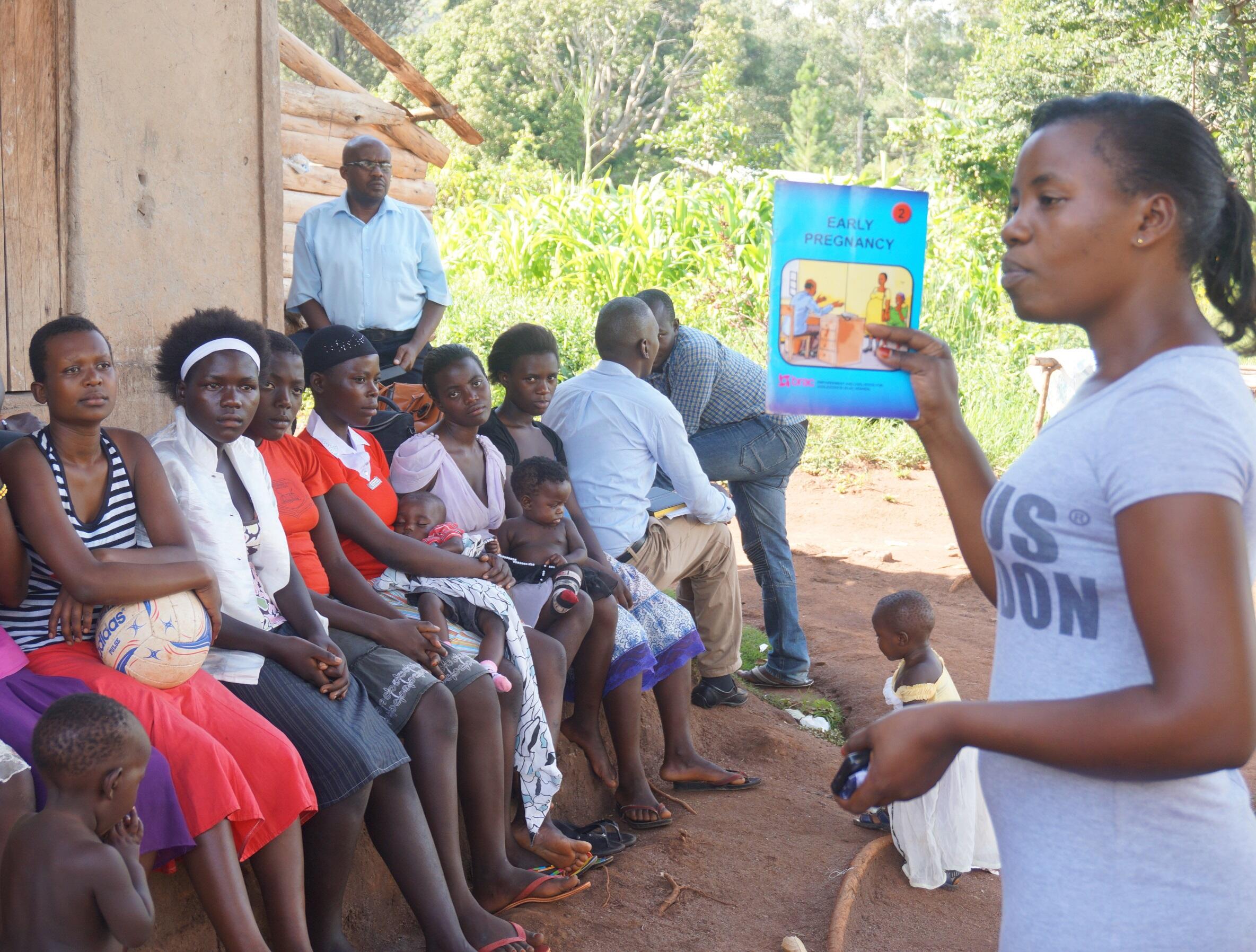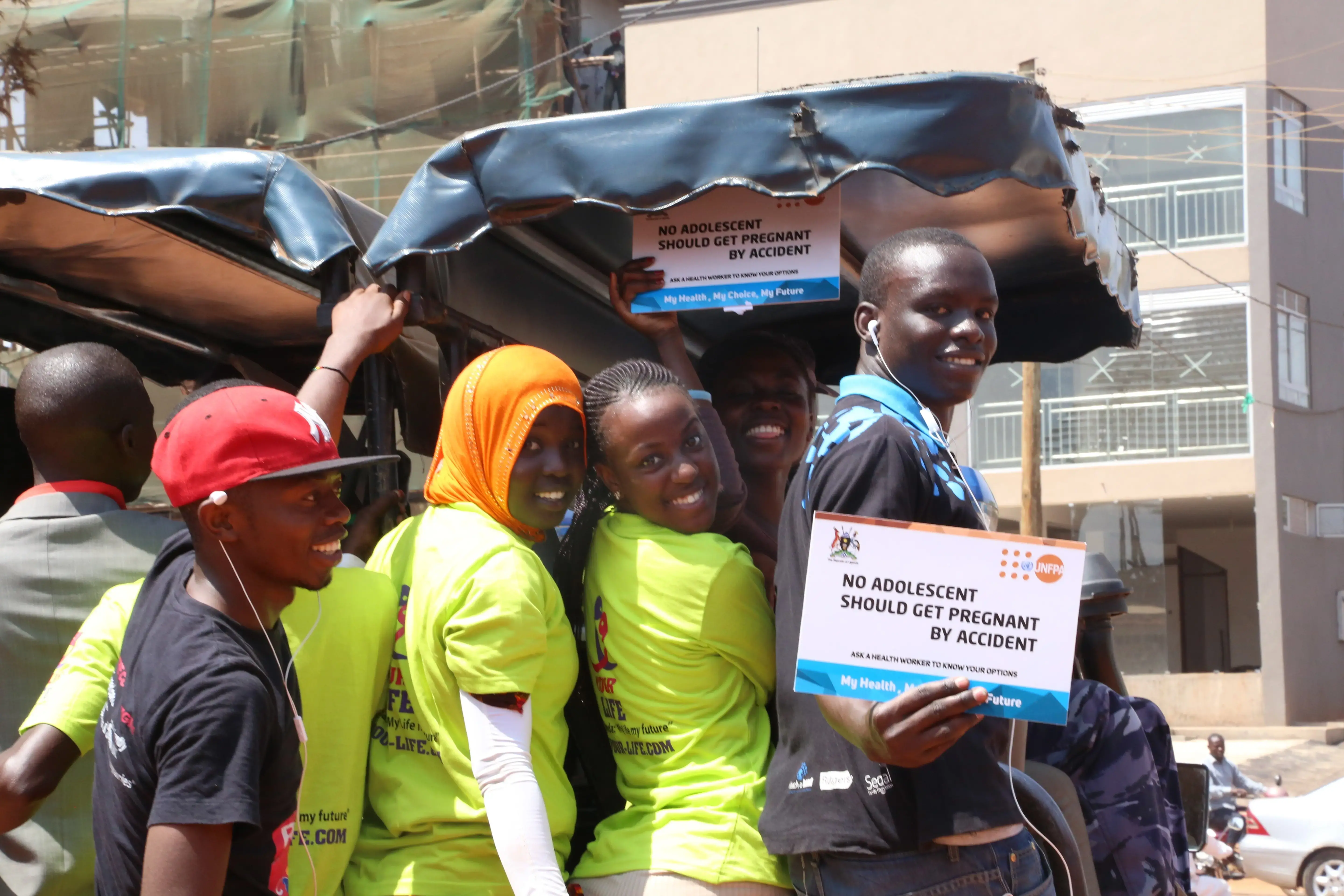Jhazirah, 20, lives in Kampala. She was abandoned by her mother at 14 years, when the family was hit by financial hardship. After her mother left, Jhazirah was forced to drop out of school, as she could no longer afford to pay her tuition. She was introduced to an Empowerment and Livelihood for Adolescents (ELA) club, managed by UNFPA partner BRAC, by a family friend. In 2013, she joined an ELA Club in Kikulu, near Kampala as she needed a space where she felt accepted.
ELA Clubs offer adolescent girls the opportunity for a better life through mentorship, life skills training and microfinance. Jhazirah was initially attracted to the club because of the various activities they conduct, for example indoor and outdoor games, reading books, storytelling and livelihood trainings for the club members.
When asked what she had gained from being a member of the ELA Club, she said “I’m that kind of girl who had no self-confidence, who used to be a loner. I found it hard to share my life with others, but when I joined the club, they welcomed me. “I have trouble with my leg- a clubfoot. Girls outside of ELA saw me as a misfit and abnormal. At ELA, members welcomed me with open arms and I was treated as an equal.”
After three years as an active member of the club, Jhazirah was promoted to peer mentor. She received life skill training (health education), which enabled her to educate her peers on a wide range of topics such as menstrual hygiene, family planning, Sexually transmitted infections and gender-based violence. For Jhazirah, the club is now a platform to share her story in order to encourage and motivate other girls.
with their peers at one of the ELA clubs
Jhazirah has now become an advocate for family planning in her community, by sharing her knowledge about contraceptives among her peers and recruiting girls to join the club. “We don’t teach girls how to engage in sex, but we teach them how to protect themselves through abstinence and condom use if they must have sex.”
In order for the girls to become members of the ELA Club, they have to obtain permission from their parents. Due to the taboos, misconceptions and cultural barriers regarding family planning mentors also have a responsibility to include the mothers of the club members to discuss the club programme and ways to empower their daughters.
According to Jhazirah, not all mothers in the community are open to the idea of sexual education and family planning. “I invited a friend to join but we faced trouble getting permission from the girl’s mother” Jhazirah said. “My friend later became pregnant and her mother was upset that we did not teach her daughter to abstain, even though she initially told her daughter not to join the club”.
Through participation with the ELA community, Jhazirah now has confidence to pursue her dream of becoming a professional journalist. Even though she cannot afford to go back to school yet, her friends have provided her different opportunities to host events and participate in presenting at radio shows, which is a dream come true!
Irene, 18, attends the ELA club in Nsooba, Kampala after completing form four Irene’s mother could no longer afford paying for her education, so she had to drop out of school and look for a job.
She was introduced to Nsooba club in 2016. According to Irene, becoming a member of the ELA Club has been a life changing experience. She went from being unemployed to starting her own small business through the microfinance program. To ensure the loan is utilized responsibly the club also offers financial literacy training.
Shortly after becoming a mentor Irene’s mother passed away in 2017. She used the monthly honorarium she received to pay for her brother’s school fees. With her small business she could also afford to budget for the two of them.
Irene is passionate about mentoring younger girls (9-12 years of age) and talking to them about menstrual and personal health manangement . Growing up she did not have access to this information. “The first time I got my menstruation I did not know about it, so we tell them if you see blood don’t run to the doctor crying, just tell your mom, let her buy for you pads.”
The negative perceptions and attitudes towards family planning have also changed in her community due to peer education and parental engagement.
By teaching her peers about family planning and engaging the parents in the community, “Even the parents who were not okay with it, are now okay with it” Irene says.
Through the ELA programme, Irene has found her passion in educating others about their health. She dreams of one day becoming a nurse so she can make a greater impact in her country.
Story by Hamida Massaquoi, (Intern, UNFPA Uganda March-June 2018)




